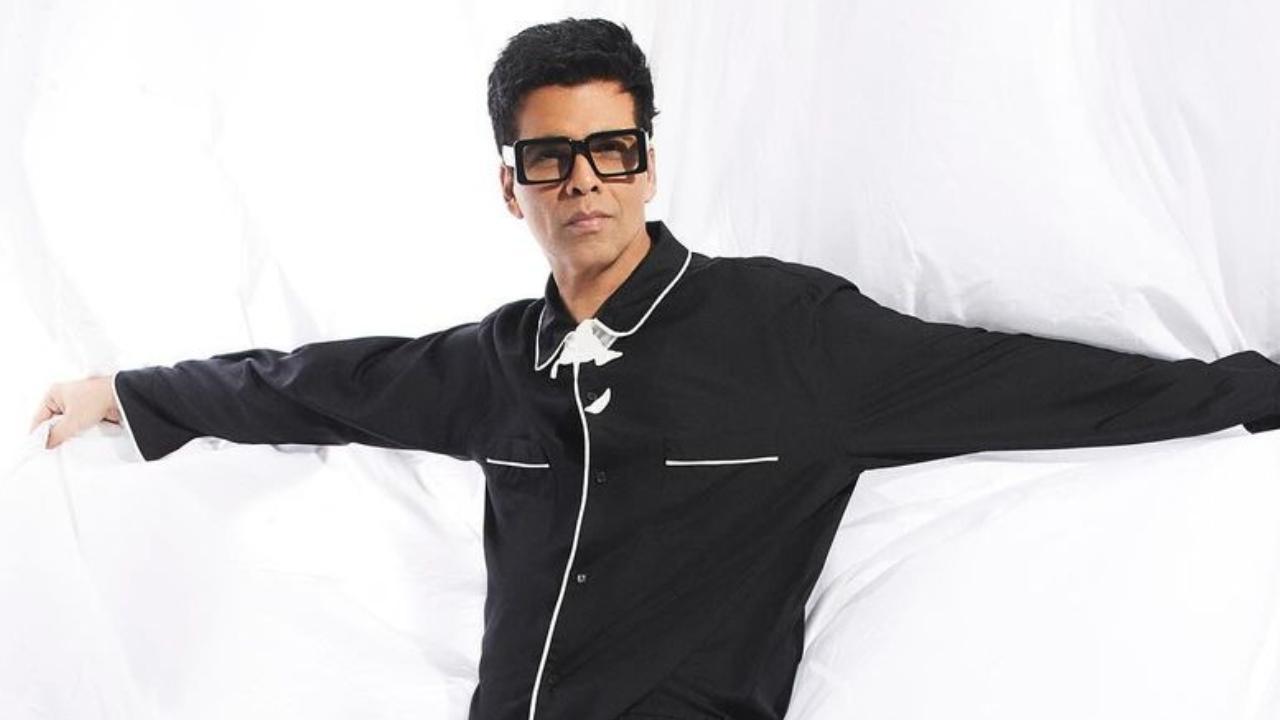
Celebrated filmmaker and head of Dharma Productions, Karan Johar has often been candid about his personal battles. In a recent intimate conversation with journalist Faye D’Souza, Johar unveiled a poignant aspect of his life that remains largely hidden from the public eye: his ongoing struggle with body dysmorphia. The acclaimed director of hits like ‘Ae Dil Hai Mushkil’ opened up about his inability to fully cope with this condition and shared the emotional and mental toll it has taken on him.
“I have body dysmorphia; I am very awkward getting into a pool,” Karan revealed, his voice tinged with vulnerability. “I don’t know how to do it without feeling pathetic. I’ve tried very hard to overcome it. No matter what success you achieve or who you think you are in your own head, I’m always in oversized clothes. Even if I lose the weight and try very hard, I’m always battling with it, but I’m always feeling I’m fat. So I don’t want you to see any part of my body.”
Body dysmorphia, a mental health disorder in which an individual can’t stop thinking about one or more perceived defects or flaws in their appearance, can be deeply debilitating. For Karan, these perceptions stem back to his childhood. “Nothing has changed since I was eight. I self-body shame myself all the time. The day you feel you’re looking good, it doesn’t matter what you’ve achieved. Even in situations of intimacy, I need to put the lights out,” he shared, emphasizing that such perceptions have followed him throughout his life.
The filmmaker went on to discuss the various ways he has tried to deal with his condition, including therapy. “I’ve been to therapy for it. All these issues, they fester and create mental health issues. I even took medication after suffering from a panic attack,” he disclosed.
. By opening up about his therapeutic journey and the panic attacks he has endured, Karan hopes to break the stigma surrounding mental health and encourage others to seek help.
While Karan’s openness about his struggles adds a layer of depth to his public persona, it also highlights the pervasive nature of body image issues in the entertainment industry—a paradox where appearances are often scrutinized to the extreme. Despite his success and illustrious career, Karan’s revelations serve as a stark reminder that fame and accolades do not shield one from mental health challenges.
Meanwhile, on the professional front, Karan continues to thrive. His latest production, “Kill,” hit theaters on July 5. The action thriller, featuring Lakshya and Raghav Juyal, has received rave reviews from both audiences and critics. This success not only underscores Karan’s uncanny knack for identifying compelling stories but also his commitment to pushing the envelope in Indian cinema.
Next in the pipeline from Dharma Productions is the eagerly anticipated “Bad Newz,” which is set to release on July 19. Starring Vicky Kaushal, Ammy Virk, and Triptii Dimri, the film promises to be another engaging narrative that will undoubtedly captivate moviegoers.
Karan’s transparency about his mental health struggles is a powerful step towards dismantling the stigma associated with such issues. His courage to speak publicly not only lends a voice to those who might be suffering in silence but also amplifies the importance of mental health conversations in a society that often prioritizes appearances over well-being.
In a world increasingly focused on external beauty and perfection, Karan Johar’s story is a testament to the profound impact of internal battles. By sharing his struggles with body dysmorphia and the measures he has taken to address his mental health, Karan is encouraging a paradigm shift—a move towards empathy, understanding, and openness about the often hidden battles many endure.
The renowned filmmaker’s revelation comes as a powerful reminder that mental health does not discriminate. It’s a universal concern that requires compassion, conversation, and, most importantly, action. Through his sincerity, Karan Johar not only adds another dimension to his illustrious persona but also furthers the cause of mental health awareness, making it clear that seeking help and sharing one’s vulnerabilities is a strength, not a weakness.
If you or someone you know is struggling with mental health issues, please reach out for professional help. Conversations like these help us realize that we are not alone in our battles and that there is light at the end of the tunnel.
###












